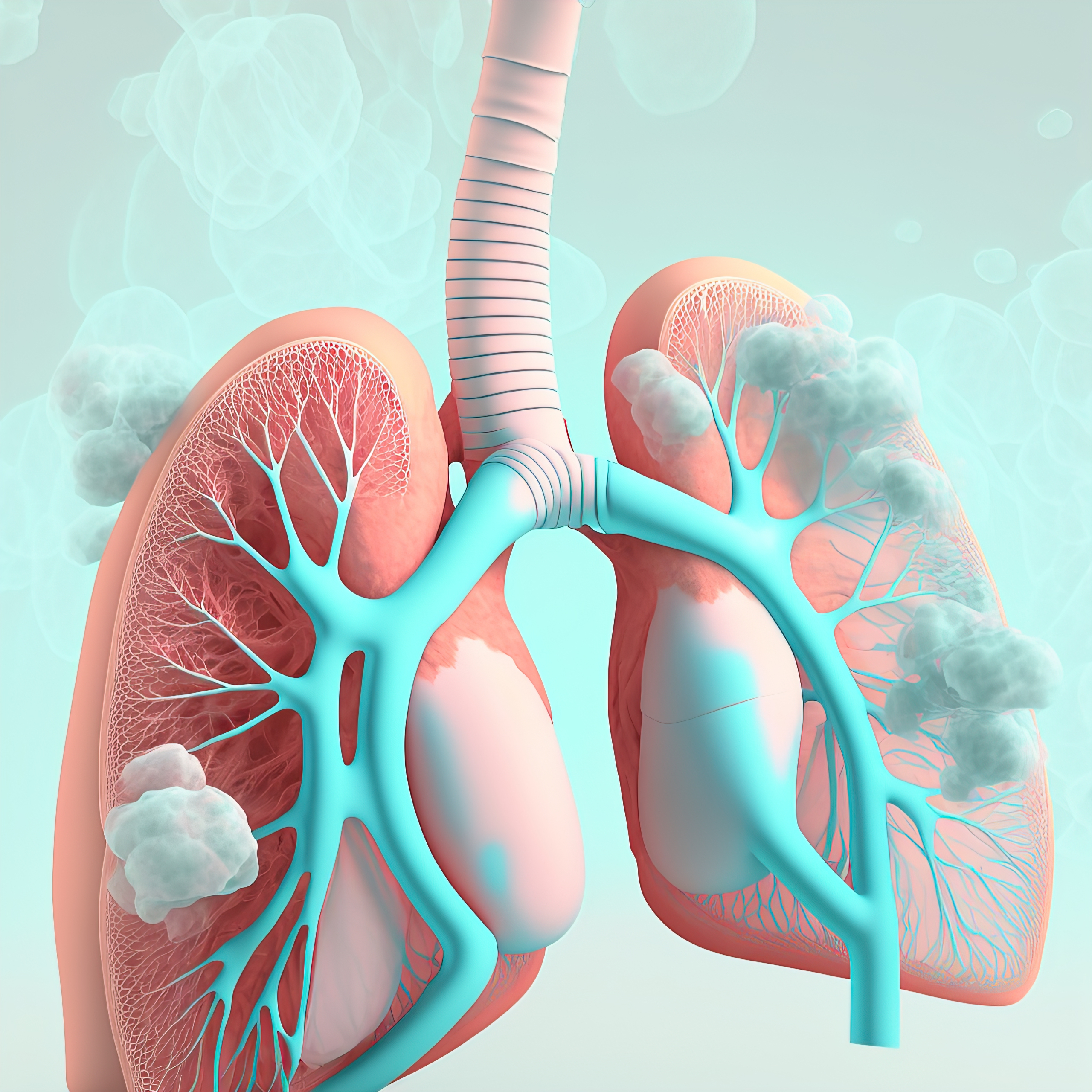
How to Manage COPD - Asthma Management Advice
Asthma management advice for people with COPD, including how to manage your symptoms and how to avoid asthma triggers.
The below content is derived from research done using sources available on the internet. Safey Medical Devices Inc and its subsidiaries do not take any responsibility for the accuracy of the content. No medical decision should be taken on the basis of below content without consulting with your Medical Practitioner.
Asthma and COPD affects many people in the UK, and is a complex respiratory disorder that can change the lives of sufferers. But how exactly can you ensure you are effectively managing your condition? Here are our tips on how to manage COPD.
If you have been diagnosed with COPD, or Chronic Obtrusive Pulmonary Disorder, the prospect of managing this complex health condition can at first feel overwhelming. As a chronic illness with no cure, proper management of COPD is vital to improve patients’ outlook and quality of life.
Thankfully, your quality of life with COPD can be significantly improved simply better dealing with the condition effectively. Whilst this might seem like a lot of responsibility, it is actually incredibly positive – with good management, you can take back control over your life and ensure it is not ruled by COPD.
There are many reasons to regulate your COPD care. As the World Health Organisation explains, the main goals of COPD management are to:
- Prevent disease progression
- Relieve symptoms
- Improve exercise tolerance
- Improve health status
- Prevent and treat complications
- Prevent and treat exacerbations
- Reduce mortality
But how exactly can you ensure you are effectively managing your condition? Here are our tips on how to manage COPD.
Creating a COPD management plan
The first step towards effectively managing your COPD care is to create a COPD management plan. This is a brilliant way to plan out how you will manage your care, and to hold yourself accountable throughout the process.
According to The Australian Lung Foundation, there are several key elements to making a good COPD management plan, including:
- Setting realistic goals that are important to you.
- Reward yourself for successes
- Seeking support from family, friends and health care teams
- Locating your nearest COPD support group
- Enrolling in pulmonary rehabilitation and plan for future treatments
This can be discussed and created with your health and medical care teams, or in consultation with a COPD support service. It is well worth writing all of this down in a planner, and creating reminders of things you need to do to maintain your treatment. Ask your loved ones to remind you and check up on your progress.
Make the most of your health team
In order to maintain an effective COPD management plan, it is vital to make use of your dedicated healthcare teams. Your doctors, nurses and support workers will make regular appointments with you – keep them, and ensure you maximize their potential.
The Australian Lung Foundation advises that COPD patients make appointments with the same doctor wherever possible so that they are well-acquainted with your condition and progress. It’s a good idea to plan ahead with a list of queries before each appointment, and list them by priority, discussing with the doctor which to go through.
It is vital to communicate any concerns you have with your doctor. There is no need to be embarrassed, your healthcare team is there to support you. Another good tip the ALF shared is to ask your GP to write down any notes, so that you can refer to them again. Also note down any out-of-hours contact numbers you might need in the case of a flare-up.
Taking your medicine properly
It might seem obvious, but the easiest way you can manage your condition is to stay on top of your medication treatment. Whilst COPD is not curable, it is becoming easier and easier to alleviate the symptoms, and prevent deterioration, with medicines, so it is important to take them.
Maintain your preventative medication
First of all, you should ensure you are taking your preventative medications regularly as prescribed by your doctor. There are a range of medicines you may be prescribed for COPD, depending on your condition’s severity, additional illnesses, and symptoms you are experiencing.
Whichever medication you are prescribed, you must remember to take it as directed, and at the same time each day. For tablets, a pill organizer may help, or alternatively a reminder on your phone.
The best way to remember to take your inhaler is to use a smart inhaler. These are inhalers that perform a range of functions to get the best use out of the medicine, from lighting up to remind you to take a dose – or sending a message to your smartphone, to tracking the effectiveness of each dosage. You can even send reports to your doctor, helping them to track how your treatment is being carried out. One smart idea is to take any pills at the same time as your inhaler reminders each day – and store them together so it is easy to remember.
Prepare for flare-ups
Effectively managing your preventative care is the best way to prevent flare-ups in your COPD symptoms, however, you should still be prepared to deal with an emergency should one occur. Make a plan with your healthcare team as to what you will do if you have a flare-up. This will include relevant phone numbers to call and may involve creating a rescue pack of medicines such as antibiotics and steroid tablets that you can keep at home should you need them.
Get your vaccinations
For COPD patients, it is essential to get all of the vaccinations recommended by the NHS. Ensure you get a flu jab every year, which is provided for free by the NHS for COPD patients. You should also be able to receive a vaccination against pneumococcal infection, which is only needed once, but can prevent one of the most severe complications associated with COPD.
Watch out for complications
Whilst doing everything you can to comply with your COPD medication and treatment, it is still wise to keep an eye out for any changes in your condition. For example, if you find yourself feeling more out of breath than usual even when taking your medicine, experience pains, discomfort or swelling, see your doctor.
Improving your lifestyle
COPD outlook is dramatically influenced by patients’ lifestyle choices. This makes it vital to try to maintain the healthiest lifestyle possible.
Stop smoking and eliminate exposure to fumes
If you have COPD, it is likely that you have already been told that smoking is the leading cause of complications and deterioration for patients. This means it is vital to quit smoking, if you currently do, in order to avoid making your condition worse.
As NHS UK explains, there are also other things that you should avoid to reduce COPD symptoms, including dust, fumes, smoke, air fresheners, perfume, hairspray and high-chemical cleaning products. These substances can exacerbate your illness.
Increase exercise
Exercise is a huge part of alleviating COPD symptoms. As the British Lung Foundation explains:
“If you have COPD, being active and exercising can help you to improve your breathing, your fitness and your quality of life. Don’t avoid activities that make you breathless: you’ll get less fit and out of breath more easily. Regular exercise can help reverse this by strengthening your muscles.”
The first step in achieving this is by attending a Pulmonary Rehabilitation course. This is a programme of exercise and education for people with COPD, that combines exercise sessions with advice on improving your lung health. According to many, the impact of PR is often bigger than the impact of taking medications, so combining these approaches is a surefire way to see benefits.
Eat a healthy diet
As with any health condition, maintaining a balanced diet will only help to improve your outlook. Eat a healthy diet with plenty of fresh fruit and vegetables, and avoid fatty and sugary foods that can contribute to weight gain. Being overweight puts additional pressure on the organs, including the lungs, and will exacerbate your breathlessness and could lead to diabetes. So try to eat healthily, and avoid having tea, coffee or alcohol before you go to bed.
Reducing stress
Stress is another main factor in the exacerbation of any disease, and so needs to be taken seriously by COPD sufferers. Doctors suggest techniques to help COPD patients reduce breathlessness, which should be practiced every day for your physical health. However, these techniques can also aid in reducing stress.
Ensure you get plenty of sleep every day, so you can maintain good energy levels. Make sure you reach out to loved ones, support groups and professionals if you are struggling. You could even look for enjoyable ways to reduce stress – COPD.net explains that some COPD patients find that joining a singing group helps them to reduce stress and manage their symptoms, such as difficulty breathing, better.
To find out more about managing respiratory conditions, visit our website today.








